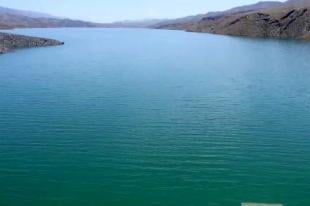AT Kabul: Zabiullah Mujahid, the spokesman for the Islamic Emirate, stated that despite the prevailing drought in the country causing water scarcity for Afghans, the Islamic Emirate remains committed to the water rights treaty with Iran concerning the Helmand River. Mujahid emphasized that if water resources are available, efforts will be made to honor the agreement between Afghanistan and Iran.
As a response to the water challenges faced by both nations, Iran and Afghanistan have reportedly formed a joint working group, marking a significant step in addressing the issue of water rights. Analysts stress the importance of effective dialogue between the two countries to prevent any strain in their relations.
Jawed Momand, a political analyst, highlighted the need for Afghanistan and Iran to maintain positive relations despite the water rights issue. Momand emphasized that the potential for abuse by certain groups should not jeopardize the commitment to the conditions outlined in the treaty.
Najeeb Aqa Fahim, a water issues analyst, identified a key challenge in the water rights dispute – Iran’s alleged non-compliance with the Water Rights Treaty. Fahim urged a closer examination of the differences between the nations, emphasizing that Iran’s handling of the matter requires attention and resolution.
The issue of water scarcity and its impact on the region’s water resources, especially in Afghanistan, has been acknowledged by both nations. The deputy Prime Minister for Economic Affairs, during a recent trip to Iran, highlighted the negative impact of the drought on the region’s water resources, with a significant decrease in underground water. As the situation unfolds, a collaborative approach and adherence to treaty conditions will be crucial in resolving the water rights dispute between Afghanistan and Iran.
 Afghanistan Times
Afghanistan Times




